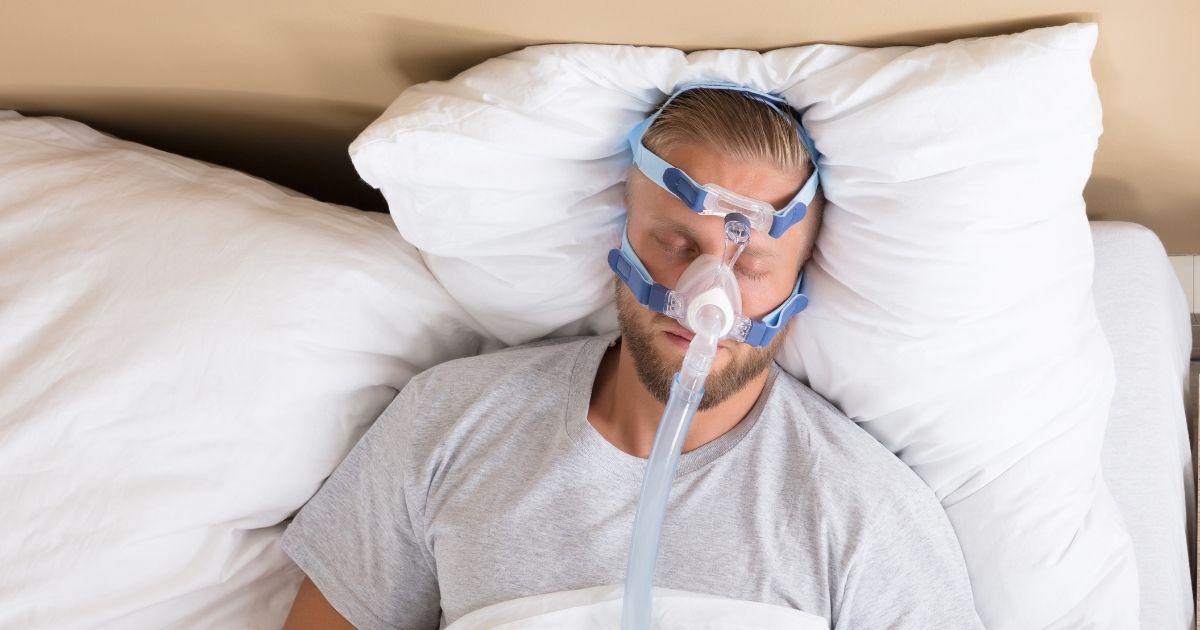Snoring and other nose problems that interfere with breathing and airflow can lead to obstructive sleep apnea, particularly a deviated septum or polyps within the nasal passage. Smoking, allergies, congestion, colds, and other conditions causing nasal tissues to swell can also contribute to sleep apnea. Patients with chronic nasal conditions of this type may require surgical intervention to ease sleep apnea, such as the laser-assisted uvulopalatoplasty (LAUP) procedure.
What Is Obstructive Sleep Apnea?
Obstructive sleep apnea occurs when the tongue is sucked against the back of the throat during sleep, causing disruptions in airflow and lowering blood oxygen levels to the brain. When oxygen levels become dangerously low, the person partially awakes, clearing the throat and restoring breathing, usually in the form of a gasp for breath.
The pattern repeats continuously throughout the night for many patients, preventing the sufferer from restful sleep. Other symptoms include:
- Fatigued when waking, even after a whole night’s sleep.
- Headaches upon waking.
- Extreme fatigue during the day.
- Falling asleep at inappropriate times during the day.
- Concentration and memory problems.
- Irritability and anger flare-ups.
- Sleep apnea-induced health conditions include heart attack, stroke, and high blood pressure.
What Is the LAUP Procedure?
To fully determine the existence or severity of sleep apnea, patients undergo a sleep study before surgical intervention. Surgical procedures to address sleep apnea widen the airway and allow for better airflow during sleep. LAUP involves removing all or a portion of the uvula at the back of the throat and soft palate. Removal opens the airway and reduces vibration as air travels through the throat, alleviating or reducing snoring and sleep apnea symptoms.
Patients will be given general anesthesia during the surgery. The procedure is considered an outpatient surgery, and most patients can return home following a few hours of recovery at the dental office. More severe cases may require an overnight stay for monitoring following the procedure.
What Should I Expect During and After LAUP Surgery?
Cases differ, and your surgeon will provide specific instructions on preparing for surgery, which must be followed exactly. Expect recovery for a few days up to a week following LAUP surgery, so you should make arrangements with your employer and secure a friend or family member who can care for you during this time. You will also be required to have another person drive you to and from the dental office on the day of your surgery.
Recovery from LAUP surgery can be difficult and painful, particularly in the throat area, and you may experience the following symptoms and side effects for up to a few weeks:
- Sore throat
- Low-grade fever
- Difficulty swallowing
- Blood in saliva
- Nausea and vomiting
- Ear pain
- White skin patches at the surgery site
- Bad breath
- Medication-induced constipation
Following your surgery, you will be provided with prescriptions for pain medication and aftercare instructions for your recovery at home, which typically include:
- Take medication as prescribed, as the pain will likely worsen for the first few days.
- Drink plenty of clear liquids, such as water or tea, and avoid acidic juices that irritate the throat.
- Eat only soft foods and avoid foods that irritate the throat, such as potato chips, crackers, greasy foods, popcorn, and raw fruits and vegetables.
- Operating a humidifier may also help moisten your throat for the first few days of recovery.
South Jersey Oral Surgeons at Lanzi Burke Oral & Maxillofacial Surgeons Ease Sleep Apnea Conditions
Sleep apnea is a severe condition that interferes with a person’s ability to breathe, interrupts crucial sleep, and can lead to other troubling health conditions. If you are experiencing sleep apnea, our South Jersey oral surgeons at Lanzi Burke Oral & Maxillofacial Surgeons can evaluate your condition and treatment options. Call us today at 856-582-4222 or contact us online to schedule a consultation. Located in Washington Township, Haddonfield, and Woolwich Township, New Jersey, we are dedicated to helping patients throughout South Jersey.


